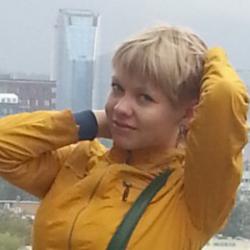Practise and Publish
But ICAN Club will continue its encouragement program.
Young Learners will be awarded a Winner Sticker for each post which scores +500 points
Five Winner Stickers = a prize
Read more here
Adults will be offered a 5 per cent discount to attend a session in ICAN Club for each post + 1500 points.
Read more here
But do not write for prizes. Prizes are just a game to keep you interested and feel appreciated.
Writing for publication will dramatically improve your essays and will get you to the next level of real-life communication. Staying in top three longest will be randomly awarded by ICAN Club's prizes.
Five reasons to develop writing skills:
1. Writing is a powerful tool to develop your career.
2. You can voice your opinion and make a change.
3. Writing helps reflect on your life and make the best of it.
4. We are living in amazing times. Record, document, share!
5. Writing is fun and boosts creativity.
Tags
Photostream

Сollectivization Is a Dark or Wite Part of The History?
- By Marina
- Posted Jul 27, 2016
Last month I visited my granny. She lives in a beautiful village with an interesting name Dobryja Hory (Biešankovičy district, Vitebsk Region). As usual I inquire the granny about some events in the history of my family. It is very important for me because I want to build my family tree.
This time I was inquiring about collectivization. Everybody knew about a dark side of collectivization. It was dekulakization. But was it true that all peasants (except administrative staff) were forced to cooperate in order to create kolkhozes? Did we have examples of voluntary memberships? I read a lot that peasants didn’t want collectivization. They killed their livestock rather than give them up to a common property. And a result of collectivization was famine.
My granny hadn’t been born when “kolkhozes” were created in her native Drozdy village, Biešankovičy district. But she listened to conversations about collectivization. And she said that it depended on assets. A lot of peasants were poor (the same about my great-grandfather and his family). This people didn’t have enough food for their families and “kolkhozes” were for them as a chance for the best future.
Were they lazy? Why didn’t they work hard to have enough property, I asked. They did, my granny said. It was true that almost all peasants had the same private plots of land after the Russian Revolution of 1917 — about 40 hectares per family. However, long-term productivity of lands was different. Peasants who were close to district and provincial authorities had got best plots and were becoming wealthier.
My granny told me stories when “kulaks” created gangs to grab others before ‘dekulakization’.
I saw that there were no black or white in the history, as usual.




















